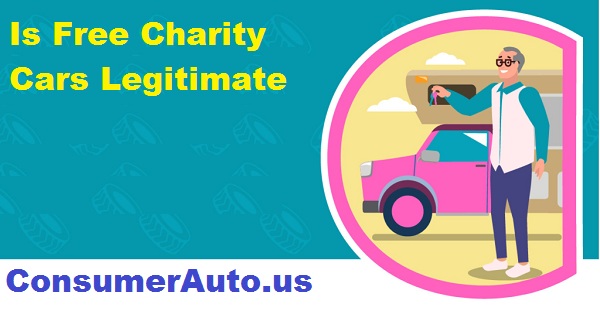In a world where reliable charity initiatives hold significant importance, the Free Charity Cars program stands out as a beacon of hope for individuals in need. This article delves into the depths of the program’s legitimacy, its operations, and its transformative impact on recipients. We aim to provide a comprehensive overview that not only addresses skepticism but also highlights the positive change the program brings to communities.
The Free Charity Cars program represents a commendable effort to provide a lifeline to individuals facing transportation challenges. As we delve into the intricacies of this program, it becomes evident that its credibility is rooted in its commitment to serving the most vulnerable members of society.
Understanding Free Charity Cars
At its core, the Free Charity Cars program aspires to bridge the gap between transportation needs and financial constraints. Operating on a donation-based model, the program collects and redistributes vehicles to individuals who meet specific criteria. By understanding how this program operates, we can appreciate its noble mission of enhancing the quality of life for those in need.
Eligibility Criteria
Applying for a free charity car involves meeting certain eligibility requirements. These criteria consider factors such as financial need, mobility challenges, and the applicant’s ability to maintain a vehicle. It’s crucial to understand who can apply and the considerations taken into account during the selection process.
Application Process
For those seeking assistance, the application process is straightforward. Here’s a step-by-step guide to initiating the process:
- Research: Start by visiting the program’s official website to gather information about eligibility and requirements.
- Documentation: Prepare necessary documents such as identification, proof of income, and statements explaining your need for a free car.
- Online Application: Fill out the online application form, providing accurate and detailed information.
- Submission: Submit your application along with the required documentation through the designated channels.
Screening and Verification
To ensure transparency and fairness, the Free Charity Cars program employs a rigorous screening and verification process. This involves verifying the authenticity of the applicants’ circumstances and need for transportation. By adhering to these measures, the program upholds its commitment to aiding those who genuinely require assistance.
Sources of Donated Vehicles
The success of the Free Charity Cars program hinges on collaboration with various stakeholders. Donated vehicles come from partnerships with donors, car dealerships, and organizations that share the same goal of making a positive impact. These collaborations enable the program to expand its reach and help more individuals regain their mobility.
Impact on Recipients
Real-life stories highlight the transformative power of receiving a free charity car. These anecdotes underscore the program’s ability to uplift individuals, enabling them to access employment opportunities, medical care, and educational pursuits that were previously out of reach. By showcasing these narratives, we illuminate the far-reaching effects of this initiative.
Skepticism and Concerns
Addressing doubts about the legitimacy of the program is crucial. By providing comprehensive information and transparency in its operations, the Free Charity Cars program ensures that concerns are alleviated. This commitment to accountability contributes to its credibility.
Success Stories
The program’s success stories stand as testaments to its efficacy. Individuals who were once struggling to make ends meet have turned their lives around with the assistance of a charity car. These narratives underscore the program’s role in enabling personal growth and empowerment.
Legal and Ethical Considerations
Operating within legal and ethical boundaries is of paramount importance to the Free Charity Cars program. By adhering to regulations and guidelines, the program demonstrates its commitment to conducting operations in an ethical and responsible manner.
FAQ Section
How do I apply for a free charity car?
To apply, follow these steps:
- Research eligibility criteria and requirements on the program’s official website.
- Prepare necessary documentation, including identification and proof of need.
- Complete the online application form.
- Submit your application and documentation through the designated channels.
What are the eligibility requirements?
Eligibility is based on financial need, mobility challenges, and ability to maintain a vehicle.
How are recipients selected?
Recipients are selected through a rigorous screening process that verifies the authenticity of their circumstances.
Are the donated cars in good condition?
Yes, the program ensures that donated cars are in good condition before distributing them.
How does the program sustain itself?
The program sustains itself through partnerships, donations, and collaborations with stakeholders.
Can I donate my car to the program?
Yes, the program welcomes vehicle donations from individuals looking to contribute.
Is the program available nationwide?
Yes, the Free Charity Cars program operates across the nation, helping individuals in various communities.
Transparency and Accountability
The program maintains transparency by providing financial reports and accountability measures. This transparency reinforces its commitment to its mission.
Collaboration with Other Charities
Collaborations with other charitable organizations amplify the program’s impact, allowing it to reach more individuals and communities in need.
Challenges Faced
Every endeavor comes with its challenges. The program adapts and evolves to overcome obstacles, ensuring its continued effectiveness.
Criticisms and Controversies
Addressing criticisms and controversies head-on fosters open dialogue. By presenting a balanced perspective, we provide a comprehensive understanding of the program’s operations.
Impact on Communities
The Free Charity Cars program doesn’t just impact individuals—it also contributes to community empowerment by enabling greater access to resources and opportunities.
Ways to Support the Program
Readers can contribute to the program’s success by volunteering, donating, or raising awareness. These actions play a pivotal role in furthering its mission.
Conclusion
In conclusion, the Free Charity Cars program stands as a testament to the positive change that reliable charity initiatives can bring to society. By addressing skepticism, showcasing success stories, and highlighting its transparent operations, we reinforce the legitimacy of this program.







